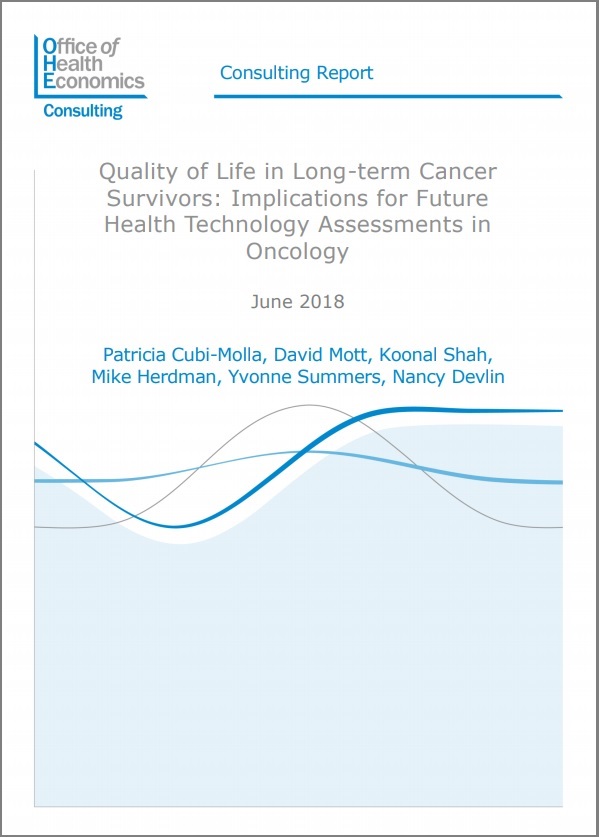Sign up to our newsletter Subscribe
Analysing Global Immunisation Expenditure

Cancer survival rates have improved dramatically in recent decades due in part to pharmaceutical advances, with a growing range of increasingly effective and targeted medicines being developed, such as immunotherapies. In the economic modelling of such treatments, the question arises of which utilities should be assigned to patients who show a long-term, durable response.
In recent critiques of economic models in this area by the National Institute for Health and Care Excellence (NICE), the idea that long-term cancer survivors (LTCS) who have received such treatments could report quality of life (QoL) scores which are similar to, or higher than, those of equivalent general population samples has not been viewed as credible. This literature review examines whether there is evidence to support the assumption that the QoL of LTCS can be similar to that of age/sex-matched population samples.
This study was funded by Roche Products Ltd.
Quality of Life in Long-term Cancer Survivors: Implications for Future Health Technology Assessments in Oncology
Cubi-Molla, P., Mott, D., Shah, K., Herdman, M., Summers, Y. and Devlin, N.
(2018) Quality of Life in Long-term Cancer Survivors: Implications for Future Health Technology Assessments in Oncology. OHE Contract Research. Available from https://www.ohe.org/publications/quality-life-long-term-cancer-survivors-implications-future-health-technology/
